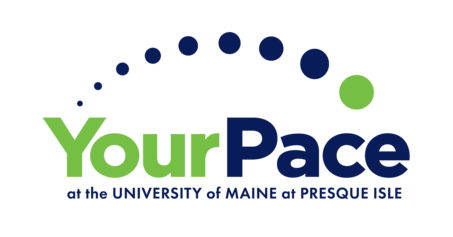Bachelor of Arts in Criminal Justice

Your pathway to online degree completion
Next Session Start Date:
Apply by: 06/11/24
Document Deadline: 06/14/24
Confirmation Deadline: 06/21/24
Start Session: 07/01/24
Program Overview
Get to know our online B.A. in Criminal Justice program
As more and more institutions increase their college education requirements, the 100% online Bachelor of Arts in Criminal Justice degree program equips you with the knowledge and skills you need to deepen your expertise and stand out among the competition. As a graduate, you will be prepared for higher-level opportunities in law enforcement, as well as judiciary services, forensics and investigation, private security, and Homeland Security.
Our accredited online B.A. in Criminal Justice program has a strong focus on social justice issues. In this program you will gain a solid understanding of the theories and methodology of criminal institutions as well as the sociological and psychological study of different types of crime. You will also gain hands-on supervised field experience in a criminal justice or social service agency. Coursework examines the effects of crime in the media, economic and social reactions to criminal behavior, and the justice system.
What Is Competency-Based Education?
Designed to leverage your previous knowledge, college coursework, and work experience, competency-based education enables you to earn your degree at your pace as you demonstrate mastery of relevant academic content.
How our YourPace online programs save you time and money:
- Prove your knowledge, move ahead—the faster you advance, the more you save
- Flat tuition rate per 8-week session, no matter how many courses you complete
- With no weekly deadlines, you control the speed of completion
The University of Maine at Presque Isle is accredited by the New England Commission of Higher Education (NECHE).
As a graduate of this criminal justice online program, you will:
- Obtain supervised field experience in a criminal justice or social service agency
- Leverage knowledge of criminal justice institutions and processes, theories of crime and punishment, criminal law, and social science research methods in real-world settings
- Understand the sociological study of crime and its attempted control, as well as understand social attitudes, prejudices, and group dynamics
- Comprehend and address critical content regarding stratification, social change, and emotional and cultural intelligence
- Develop the business communication skills and social psychology to aid your work in criminal justice and social institutions
Criminal justice career opportunities:
- Deputy U.S. Marshal
- Fraud Investigator
- Court Administrator
- Loss Prevention Manager
- Criminal Investigator
- Security Manager
- Corrections Administrator
- Community Corrections Officer
- Victim Advocate
- Law Enforcement (local, state, federal)
Also available:
$1,500* per session
Flat-Rate Tuition
12 months**
Duration
120
Credit Hours
UMPI is ranked among the Top 10 Regional Colleges in the North for graduates with the least debt. – U.S. News & World Report, 2023.
“I have an extensive work and business background. The flexibility of completing my degree online and at my own pace and convenience was exactly what I needed.”
-Perry Leavey, UMPI YourPace Online Student
Tuition
Find out how and when to pay your tuition
The B.A. in Criminal Justice online program offers highly affordable tuition with a flat rate regardless of how many courses you complete each session. No hidden fees or extra textbook costs. The faster you finish, the more you save!
*Tuition and fees are subject to change
Tuition breakdown:
$1,500* per session
Flat-Rate Tuition
Calendar
Dates you need to know
There are six opportunities throughout the year to begin our YourPace online program. Find the start date below that works best for you and apply before the application deadline. Please note, application and document deadlines are the same. UMPI must receive all documents including official transcripts by the document deadline to be considered. Transcripts can often take 10 or more business days from the request date to be received by UMPI, please plan accordingly.
Have questions or need more information about online programs?
Ready to take the next step toward earning your degree online from UMPI?
Admissions
Requirements for this online criminal justice program
We’ve made the admission process simple and streamlined so it’s easier for you to get started. Students who wish to earn their B.A. in Criminal Justice YourPace online degree from UMPI should have the equivalent of a high school diploma and possess some prior college credit and/or work experience.
Admission Requirements:
No Application Fee
Minimum 1.75 GPA
Courses
Take a look at the topics you’ll study in our online criminal justice program
To earn your B.A. in Criminal Justice, you need to complete 120 credit hours of coursework. Each course is built around a series of competencies. Once you have mastered the series, you complete the course. Using our personalized learning model, we look at your past college credit, prior learning, and work experience to create your custom degree plan.
The program includes 40 credit hours of general education courses, 45 credit hours of Criminal Justice core, 6 credit hours of Criminal Justice electives, and 29 credit hours of electives.
Request More Information
Submit the form below, and an Enrollment Specialist will contact you to answer any questions.
By submitting this form, I am providing my digital signature agreeing that University of Maine at Presque Isle (UMPI) may email me or contact me regarding educational services by telephone and/or text message utilizing automated technology or a pre-recorded message at the telephone number(s) provided above. I understand this consent is not a condition to attend UMPI or to purchase any other goods or services.
Begin Application Process
Start your application today!
Email us at umpi-yourpace@maine.edu
Or call 207-768-9433
for help with any questions you have.
*Tuition and fees are subject to change.
**Time to completion varies by student and is based on several factors including prior college coursework, relevant work experience, amount of time dedicated to studying, and the number of courses completed each session.

